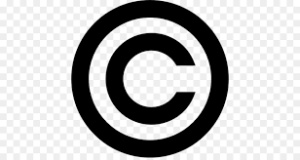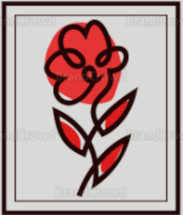Copyright, Trademark and Reproduction Rights.
 Disney probably cannot sue you, your customer might be able to, Banksy probably won’t but the Great Ormond Street Hospital For Sick Children probably will. Read on to learn a bit more,
Disney probably cannot sue you, your customer might be able to, Banksy probably won’t but the Great Ormond Street Hospital For Sick Children probably will. Read on to learn a bit more,
What Are Copyright and Trade Mark
Copyright
Every creator has automatic copyright over their creations, providing it is original and not substantially derived from an existing work. You don’t need to register copyright anywhere, but you will need to claim if you want to sue someone for infringement of copyright. You cannot claim copyright if your work is a variation of someone else’s work, whether still in copyright or not. Copyright on artistic works can be sold, gifted or licenced out.
With 2 exceptions in the UK, copyright on artistic works expires 70 years after the death of the original creator. The 2 exceptions are The St James bible, which is owned in perpetuity by Her Majesty’s Government, and the UK rights to the Peter Pan stories by J. M. Barrie. J. M. Barrie gifted the rights to Peter Pan to GOSH (Great Ormond Street Hospital) in 1929, and when the copyright expired, an Act of Parliament was amended to give all UK Copyright to any and all instances of Peter Pan to GOSH in perpetuity.
Although you shouldn’t breach the copyright of others, there are exceptions, laid down in law, to the rules and the best place to learn more about this is at https://www.gov.uk/copyright
Many big copyright owners such as film studios take a relaxed attitude to what are technically copyright breaches, providing the breach does not detract from the image of the original and you are not making a profit from that breach. Disney might not object to your painting of Star Wars Storm Trooper’s helmet in psychedelic colours, but if you start printing off, and selling, images of it then expect trouble of a legal sort.
All is not lost, copyright holders such as the big film studios etc. will sell you licences to reproduce their copyrighted work.
Trademarks
Copyright expires, but providing all fees and licences are kept up to date, Trade Mark never expires. A trade mark is something (e.g. a word or sign) which enables customers to identify goods or services as coming from a particular source, even though they may not know the source’s identity. Providing you continue to pay the licencing fee then your trademarks are yours for ever, and you can take legal action against those who use your trade marks without permission. https://www.gov.uk/renew-your-trade-mark
Some Cases
Your Commissions.
Someone pays you to do a painting for them – AKA a commission. You do it and you sell it to your customer. Who owns the copyright, you or the customer? Interesting one this. What if you wanted to use the commission as an advertising example? What if the customer decided to copy what he paid for and make money out of its reproduction? You need to be specific about who owns the copyright to a specific work of art. May I recommend a little book called “A Professional Artist’s Viable Practice” by Harley and Cally Miller, it covers the area quite well. You used to get a free copy if you joined the SAA (Society of All Artists). https://www.saa.co.uk/
Disney
Contrary to popular belief Disney DOES NOT own the copyright to stories such as Beauty and the Beast, Cinderella, Snow White and the Seven Dwarves etc. The tale of Snow White and the Seven Dwarves, for instance, was first published in 1812 by The Brothers Grimm. So, you can paint a lovely lady and seven persons of restricted growth and call it Snow White and The Seven Dwarves, and there is nothing Disney can do about it, as long as you don’t give your dwarves the names that Disney have given them. The copyright of Disney’s Snow White etc. is expected to expire on 1/1/2033. Disney have trade marked the depiction of their characters though, so when copyright expires, the trademark protection remains.
Banksy
You wake up one morning and find that some toe rag has painted a large mural on your wall. Once you’ve calmed down you have to admit that it looks quite good, and so you might leave it there for a while. A few weeks later a letter from the Council pops through the door to say that there have been complaints to say that your property is not in keeping with the surrounding area and you need to remove the mural. If you don’t then the Council will remove it for you, charge you for the work, possibly prosecute you and they don’t care who painted it.
Before you have it cleaned, you photograph it, start selling prints and make tons of money. A while later you get a lawyer’s letter saying that by selling prints you have violated the copyright of their client, the toe rag who painted on your wall. What do you do?
My personal suggestion (and you might want to discuss this with a lawyer first), is that you tell the lawyer to tell the client that the client “go forth and multiply”. The application of the mural to the wall was an act of criminal damage to private property. If the client would like to identify him/herself then you would be delighted to point the client out to the local constabulary. The law states that criminals cannot profit from their crime so the client, having carried out a criminal offence won’t get a penny.7
Banksy incidentally is on record as saying that “copyright is for losers” which has been taken to mean that he will not claim copyright on his art. He has had some success though in suing for Trade Mark infringement on a specific image.
Great Ormond Street Hospital
Great Ormond Street Hospital For Sick Children has, by Act of Parliament” been granted perpetual UK copyright of all and any artistic creations related to the story of Peter Pan. They would prefer to licence the story rather than sue people though.
As usual, I am happy to be corrected if I am wrong here. If so, please email me at [email protected]
